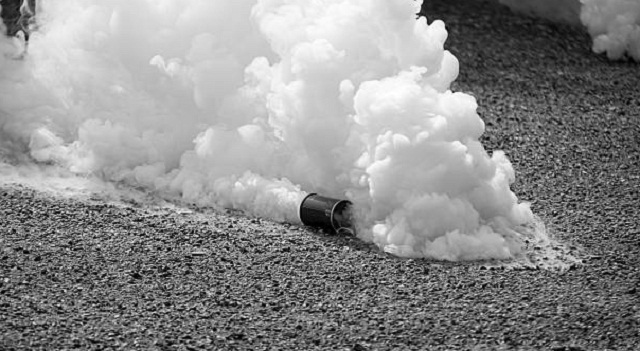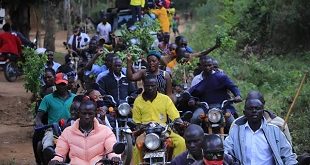
Should we expect a difference in 2021 `scientific elections’ that have banned campaign rallies?
COMMENT | GODFREY MWESIGYE | “There are campaign beatings, ballot beatings, and post-election beatings. … Then after the election cycle is over, the country shall revert to ordinary beatings.” Mary Serumaga— Pambazuka News, 29 Aug 2018.
I gasped after reading the above quote in an essay by Mary Serumaga. In her writing, she narrates how violence has been a part of Uganda’s elections, and it seems to have been normalised.
Indeed, ever since the opposition grew stronger especially after the introduction of a multiparty system in 2005, the elections have attracted violence among the competing candidates, their supporters and most of the time it has become brutal when the security forces get involved.
From the previous scenarios, at least in the last three general elections, it has been evident that a combination of violent activities accompanies the electoral processes.
In 2006, for example, there was turmoil in Kampala after Dr Kiiza Besigye, the Forum for Democratic Change presidential aspirant at that time, protested alleging that there were irregularities in the election process. This resulted in a clash between the Police and his supporters.
The year 2011 saw electoral violence before, during, and after the elections as there were scuffles between the supporters of the ruling party, those in opposition, and the police.
The peak was when Besigye and others in opposition contested the results by the Electoral Commission that declared General Museveni as the winner for the 2011 elections. ‘Walk to work’ protests immediately followed the elections and these sparked more chaos on the streets of Kampala than in the previous elections. Some civilians lost their lives at the hands of security personnel, more were seriously injured, and many were arrested.
The situation in the 2016 elections was not in any way different—at least 22 supporters of rival candidates were killed in Western Uganda alone in the fights during elections.
The violence in the 2018 by-elections is still fresh in people’s memories.
The most significant incident was that of Arua which involved the arrest of Members of Parliament—including MP Robert Kyagulanyi and MP Zaake Francis who said that they were tortured by the security agents for supporting Kassiano Wadri who was contesting against the NRM candidate. This sparked off post-election protests which were even more widespread than those of 2016 as they attracted international solidarity.
Now that the roadmap for the 2021 elections has been presented by the Electoral Commission, with new guidelines due to the COVID-19 pandemic, should we await our usual routine of violence? I would not be shocked to see the same things happening in the 2021 elections.
It is the first time in history that Ugandans will have ‘scientific elections’ as a way of social distancing to avoid the spread of coronavirus. Campaigns will be carried out on media platforms. However, it is not yet clear if the voting itself will be carried out electronically as a way of practicing social distancing.
Some of the candidates intending to participate in the 2021 elections have already disputed the ‘scientific elections’ procedures presented by the Electoral Commission noting that they were not consulted and have termed the move ‘ridiculous.’
Nobert Mao, the leader for the Democratic Party, disagreed with the proposal for scientific elections noting that the Electoral Commission did not consult all the stakeholders. Serunkuuma Yusufu, a political analyst, has argued that suspending open-air/ mass campaigns will only work in favour of NRM incumbent candidates who own the majority of the media stations across the country and it will be like escorting Museveni to victory.
The declaration that all campaigns must be held on media platforms, including televisions, radios, print, and social media makes all the public rallies and mass gatherings illegal. Except for the social media, most of the other channels are owned by incumbent politicians, again predominantly those belonging to the ruling party. A report by ACME on media coverage in 2016 elections shows that Museveni had the highest coverage in most of the newspapers, radio and television. He commanded 39% of the newspaper space, Amama Mbabazi had 29%, Besigye had 21%, and the rest was shared among other candidates. On television, Museveni had 45%, Besigye 22% and the remaining was the coverage for other competitors.
With the ‘scientific elections’, those in opposition may be blocked from holding their campaigns on these channels which most likely can propel demonstrations that can become violent. At the beginning of this year, Besigye was denied access to various live talk shows on radio stations in Jinja, Kabale, and Mubende districts. At the same time, some were switched off to deny him access to the masses.
Adoption of ‘scientific elections’ is a very new move in Uganda’s electoral processes since the elections have for long been known for drama and public excitement.
The Police and other security agencies, as usual, will have to do their duty of enforcing the new directives. There is public outcry on how the security agencies are manhandling the civilians during the implementation of Presidential directives to manage the spread of coronavirus.
With the above history and the unprecedented electoral procedures, the Electoral Commission and security agencies must be more than vigilant to avoid any scenario that can quickly spark electoral violence.
The citizens are struck by the lockdowns and curfews introduced to contain the COVID-19 pandemic, and the situation is now more fragile. Therefore, all the candidates for the 2021 elections must also ensure that they manage their supporters not to instigate any form of violence.
****
Godfrey Mwesigye is an analyst at the Centre for Policy Analysis and Parliament Watch Uganda.
Email: godfreymwesigye89@gmail.com
 The Independent Uganda: You get the Truth we Pay the Price
The Independent Uganda: You get the Truth we Pay the Price



